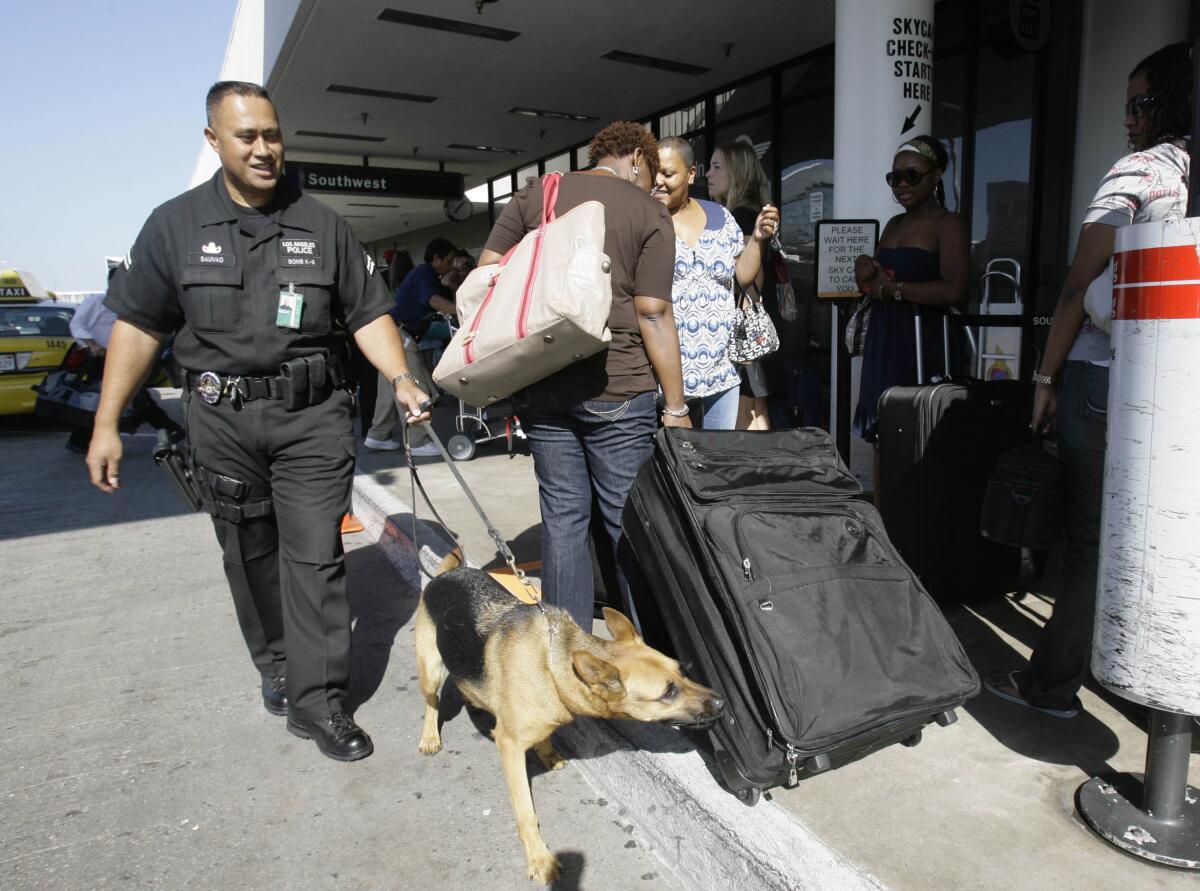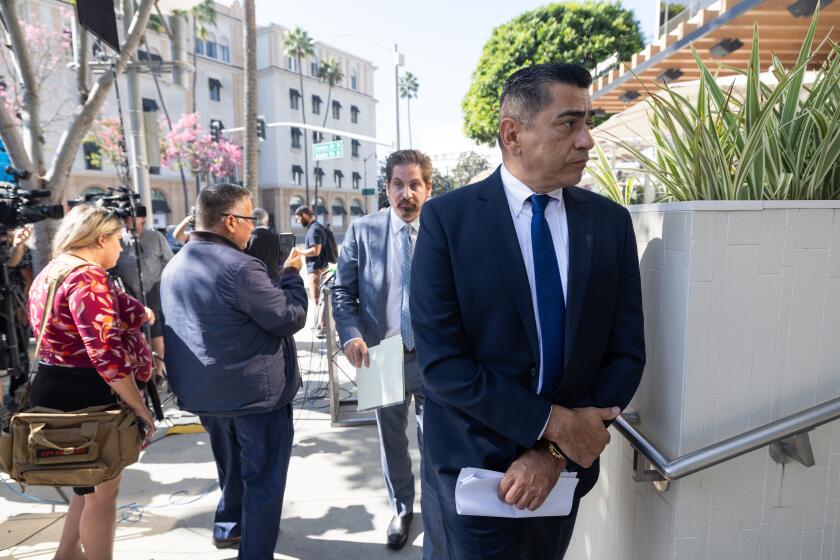Jurors award $11.5 million to former LAPD K-9 handler who claimed discrimination over Samoan heritage

A jury this week awarded $11.5 million to a former Los Angeles police K-9 handler who sued the city alleging that his supervisors retaliated and discriminated against him in part because of his Samoan ancestry.
The officer, Mark Sauvao — pronounced “su-VOW” — alleged he was unfairly punished after he reported some of his colleagues had called him names such as “cannibal” and “barefoot coconut tree-climber.” One supervisor also reportedly referred to him as being Tongan; Sauvao took the comment as an affront given the bitter early history of war and enslavement between Samoa and Tonga.
Sauvao, who is still with the department, also alleged that officers spread false rumors that he tried extorting fellow K-9 handlers by refusing to train them unless they gave him their overtime hours.
The city can still challenge the size of the jury award.
From 2005 to 2017, Sauvao was assigned to the department’s elite bomb detection K-9 unit. The 30-year LAPD veteran said his troubles began several years after his promotion to dog trainer, which came with extra pay and benefits.
After learning of the rumors about him, Sauvao said, he demanded that the unit’s commander, Lt. Raymond Garvin, intervene and launch an investigation into the officers spreading them. Neither happened, he alleged.
Another colleague testified in a deposition that Garvin relayed the overtime allegations against Sauvao to other officers at a roll call held at a nearby bagel shop. Someone in the group accused Sauvao of being the “ringleader” of a faction within the K-9 unit that called itself the “P.M.-Watch Mafia,” according to the testimony. Sauvao denies these claims.
Garvin previously filed his own lawsuit against the city alleging that a department higher-up conspired to kick him out of the unit, which led to a $700,000 settlement.
One-time LAPD assistant chief Al Labrada has filed a claim alleging mistreatment by ex-chief Michel Moore over handling of allegations against Labrada.
Sauvao said he eventually brought the matter up to Capt. Kathryn Meek of the Emergency Services Division, which oversees the K-9 unit and the bomb squad. Instead of investigating his reports, Sauvao said, internal affairs detectives showed up to search his locker several months later, which he believed was in retaliation for making his earlier complaints.
Sauvao said his request to contact a police union representative after the search was denied.
He was later ordered to undergo psychiatric testing and eventually transferred to a less desirable assignment that caused him to be separated from his police K-9 named Pistol, according to the lawsuit.
Sauvao’s attorney, Matthew McNicholas, said the award was the latest he has won in cases involving members of that K-9 unit. Two other cases from around 2008 led to jury awards of $3.6 million and $2.2 million, respectively, he said. That the same unit continues to have problems 15 years later suggests a lack of oversight, he said.
“It tells me that command continues to do what it wants and that unless somebody like me digs in, they get away with it,” McNicholas said. “Ninety-eight percent of the department are hard-working people that just go to work, do their jobs and go home; the unfortunate thing is that the other 2% have a lot of power.”
The city attorney’s office didn’t immediately respond to an email seeking comment, and an LAPD spokeswoman said the department would not discuss the case.
Sauvao’s claims were similar to those of another K-9 handler who worked in the unit at the time, Alfredo Franco, who also sued the city for discrimination and retaliation he reportedly faced after standing up for Sauvao.
Several of Sauvao’s former colleagues testified on his benefit in depositions filed in the case, with one saying he had an “unblemished” reputation and another describing the respect he commanded within the niche community of police K-9 trainers nationally.
More to Read
Sign up for Essential California
The most important California stories and recommendations in your inbox every morning.
You may occasionally receive promotional content from the Los Angeles Times.












